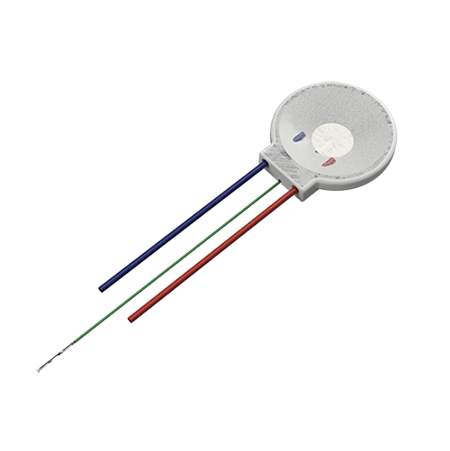
Advanced Chemotherapy Tech Raises $5.5M to Tackle Pancreatic Cancer
 Chemotherapy is the standard of care for many cancers, including one of the deadliest: pancreatic cancer. The problem with these drugs is that they’re blunt tools. In addition to destroying cancer cells, they also ravage healthy ones and spark a slew of side effects along the way.
Chemotherapy is the standard of care for many cancers, including one of the deadliest: pancreatic cancer. The problem with these drugs is that they’re blunt tools. In addition to destroying cancer cells, they also ravage healthy ones and spark a slew of side effects along the way.
Advanced Chemotherapy Technologies (ACT) of Raleigh is developing a medical device that offers targeted delivery of chemotherapy to the pancreas, sparing healthy tissue from the treatment’s effects. The company now has $5.5 million to fund tests of its technology in humans. The Series A round of financing announced Thursday was led by Khosla Ventures.
Pancreatic cancer is relatively rare, accounting for 3% of all cancers in the U.S., according to the American Cancer Society. But cancers of the pancreas are among the deadliest. There’s currently no screening test for this type of cancer, and by the time it’s diagnosed, it’s often too advanced to be removed by surgery or treated with drugs. The ACT technology is for patients whose cancer has advanced locally but cannot be treated surgically. Treatment with the device is intended to shrink the tumor enough so that it can be surgically removed.

The ACT device, about the size of a quarter, is designed to be implanted in the pancreas. The device uses iontophoresis, a technique involving a mild electric current that passes through a drug. In the ACT device, this current drives the chemotherapy gemcitabine directly into the tumor.
The company’s drug delivery system was developed at the University of North Carolina at Chapel Hill in the labs of Jen Jen Yeh, a professor in the departments of surgery and oncology, and Joseph DeSimone, a former UNC chemistry professor who is also the co-founder of another UNC spinout, the 3D printing startup Carbon. Some of the components in the ACT device are made with Carbon’s technology.
In preclinical tests in mice, the UNC scientists reported that 100 percent of pancreatic cancer tumors treated with gemcitabine delivered via the device shrunk by an average of 40 percent. By comparison, tumors treated with gemcitabine administered intravenously grew by an average of 240 percent. Now ACT wants to see what kind of results it technology will produce in humans.
CEO Tony Voiers told NCBiotech that the Phase 1 study, which will be conducted at UNC, will enroll between 12 and 18 patients. It’s still unclear when the clinical trial will begin.

Photo by: Innovate Carolina
“The pandemic has impacted enrollment of many clinical trials and we are a bit uncertain when we will be able to start,” he said. “We are working with the clinical team at UNC to assess the timing.”
About ACT and Khosla Ventures
ACT formed in 2014 and two years later recruited Voiers, a veteran of medical device companies Novocor Medical Systems of Durham, as well as Ethicon, Closure Medical, and Abbott Laboratories. The company was initially supported by angel investments and federal grant funding from the Small Business Innovation and Research program.
In 2017, ACT received a $250,000 Small Business Research Loan from NCBiotech to support the company’s efforts to advance to Phase 1 testing.
The new funding brings the backing of Khosla Ventures, a Menlo Park, California-based venture capital firm founded by Vinod Khosla, who was the founding CEO of Sun Microsystems. Khosla Ventures invests in “large problems that are amenable to technology solutions,” according to its website. The firm’s investments span categories such as agriculture and food, robotics and artificial intelligence, financial services, and transportation.
In health care, Khosla Venture’s prior investments include gene-editing company Editas Medicine and Guardant Health, which is developing a cancer diagnostic that detects signs of the disease from a small blood sample. Both Editas and Guardant are now publicly traded.
Ken Janoski, senior director of NCBiotech’s Emerging Company Development team, called the Khosla Ventures investment a “big win not only for ACT, but also pancreatic cancer patients, and, of course, N.C,’s life sciences ecosystem.”
In addition to pancreatic cancer, Voiers has said that ACT’s technology can apply to other solid tumors that are currently treated with chemotherapy. Cancers that the company has evaluated for potential treatment with the device include sarcomas, head and neck cancers, and breast cancer.
